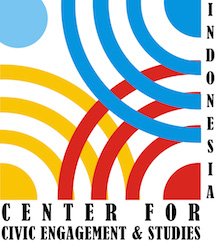[lead]
The Outcomes of Post-Reformation Progress
[/lead]
Based on the analysis and evaluation of changes resulted so far, there are some parties claiming that the reformation is still idle or there is no any convincing change. The fundamental reformation demands like cleansing of the government from corruption, human rights enforcement, equality of development, socio-economic quality of life, structuring of agrarian and also implementation of representative function in controlling the running of power have not shown expected results (PSHK, 2013, KPA, 2012).
The stagnancy in achieving expected outcomes is still debatable. Today the government and the House of Representatives are on progress of discussing the amendment of the Law No. 32/2005 on local government. After the Law No. 6/2004 on Village was ratified, the bills of the law on local government, the law on local elections and the law on the balance of national and local finance have been on the process (IRE, 2014; KPPOD, 2014). Despite the repetitively adjustments, these laws are the milestones of changes in Indonesian system of democracy. They correct the weakness of the regulations on governmental organization and its implementation. Besides regulating the decentralization of authority between the central and local governments, they also regulate the election of local leader and also authority of village level.
Outside the process as stated above, some important achievement worth noting are among others the issue of various instruments for encouraging spaces of participation for the people and civil society in the process of decision making either at the stage of planning, implementation or monitoring. Even, the issue of the Law No.14/2008 on Transparency of Public Information has become an important instrument for the people to make access to policies (Faculty of Social and political Sciences; GMU, 2009) As mentioned above, decentralization of authority and finance is granted not only at the level of regency/city as in the early reformation era but also at the level of the smallest unit of administration, namely village (Fitra, 2013).
People participation in fulfilling their needs to obtain public service now has also been regulated and it has become obligation for state apparatus to provide it. It has been regulated in the Law of Public Services and Law of Indonesian Ombudsman. In enforcing the principles of transparency, the State also has guaranteed the people to have access to public information (Yappika, 2012). This guarantee is given through the Law of Transparency of Public Information, which was ratified in 2008 after a long process of struggle and advocacy by the civil society.
